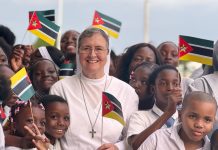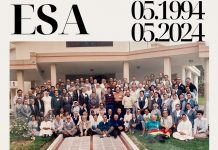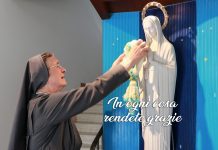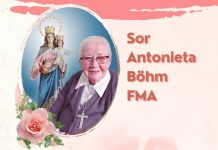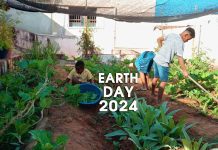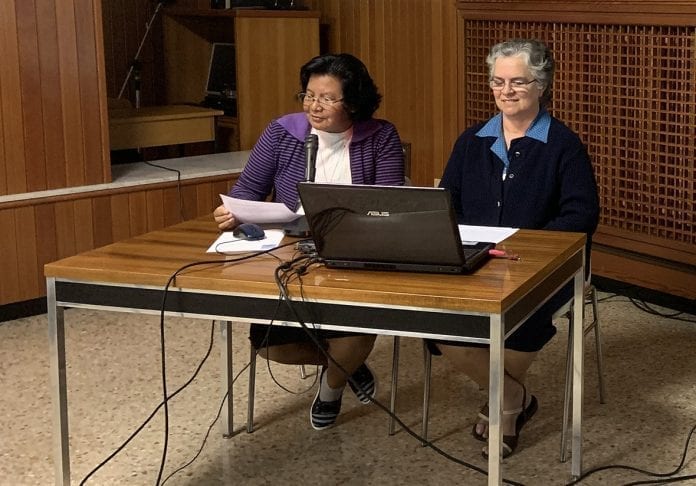Rome (Italy). On November 3, 2019, the community of the Generalate had the opportunity to hear the testimony of Sister Carmelita Conceição and Sister Mariluce Mesquita, the FMA who participated in the Panamazon Synod, so rich in reflections and ideas that they now ask to be implemented to bring the fruits so desired by Pope Francis, by the Synod Fathers, and above all by the populations that inhabit these lands.
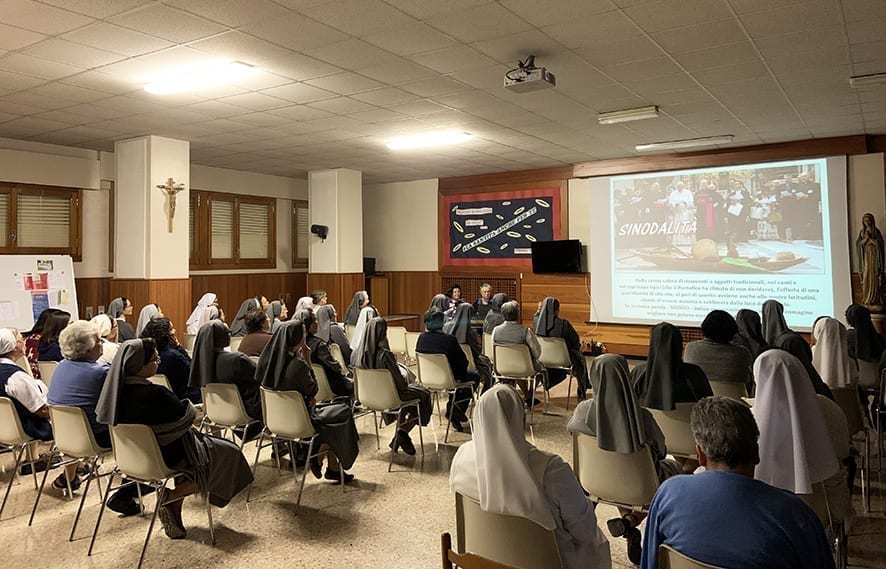 Sr Carmelita Conceição, Provincial of Laura Vicuña Province of Manaus (BMA), retraced the main stages of this experience of a Church that set off on a journey, “To find new ways to evangelize that portion of God’s people, especially indigenous people, who are often forgotten and without the prospect of a peaceful future, also due to the crisis of the Amazon forest, lung of fundamental importance for our planet.”
Sr Carmelita Conceição, Provincial of Laura Vicuña Province of Manaus (BMA), retraced the main stages of this experience of a Church that set off on a journey, “To find new ways to evangelize that portion of God’s people, especially indigenous people, who are often forgotten and without the prospect of a peaceful future, also due to the crisis of the Amazon forest, lung of fundamental importance for our planet.”
The experience of the “Amazon: Common Home” Tent, in the Church of Santa Maria in Traspontina, which was the home of the Amazon peoples during the Synod, the Via Crucis from Castel Sant’Angelo to St. Peter’s Square organized by REPAM – Ecclesial Network Panamazzonica – to remember the martyrs, including Sister Maria Troncatti, and the violated rights of the Amazon, the “Pact of the Catacombs for the Common Home”, signed in the Catacombs of Domitilla, “for a Church with an Amazonian face, poor and servant, prophetic and Samaritan,” were some of the significant moments lived.
The Synod was a strong time of spirituality, of formation, of the experience of God, of unity in diversity where a climate of prayer and the presence of the Spirit were breathed. “In the assembly room, the mystical presence of Missionaries who shared the often tragic destiny of the Indians showed the face of the Church. For every 4 interventions, the Pope invited us to have 4 minutes of silence to internalize, pray, and listen to the Spirit.”
Sister Carmelita underlined how in the Amazon the evangelizing mission of the Church constitutes the transversal line, from the formation of priests, to religious life, to the education of young people, to the challenges of great distances, which make it difficult to celebrate the Eucharist in the most isolated regions, and the recognition of the service of women, the need to oppose the violation of human and nature’s rights (human trafficking, drug trafficking, smuggling of timber and minerals). In all this, the Salesian presence is closely linked to the promotion and defense of life, in addition to being inserted into the Church with and for new generations: “I am happy to hear that the FMA can be 100% involved in many of the proposals that concern the care of life, the protection of the common home, and the salvation of the planet.”
She reiterated the importance for Catholics to be aware of the situation in the Amazon and to get involved, because “No one can say it is not my business. To do nothing means to become accomplices of destruction.”
She also recalled the precious work of the thousands of women in the Amazon who animate most of the Christian communities, far from the diocesan or parish centers – catechists, extraordinary ministers of the Eucharist, community coordinators, engaged in social and health ministry – who in the vast majority of cases guide and take care of Sunday celebrations in the absence of a priest. “They are the ones who bring the word of proclamation of the Gospel, the formation of new generations: the celebration of faith in daily life goes through the feminine word and gestures.”
Ending her sharing, Sister Carmelita highlighted three strong points that emerged from the synod reflections: the ecological dimension, as a dimension of the future for the survival of the planet, with a decisive ‘no’ to compulsive exploitation; the social dimension, which equally concerns the destruction of cultural identity, with every kind of injustice, exploitation of people, with trafficking at every level; the pastoral dimension, that is, allowing indigenes the path to the priesthood, as well as reinforcing what lay people, priests, permanent deacons, and religious women and men do.
Sr. Mariluce dos Santos Mesquita, indigene of the Bará ethnic group from northern Brazil, began by saying: “my birth name is ‘Diatoh’ which means ‘water source’. I am the daughter of a Colombian native who crossed the border to live in Brazil.
My parents taught me to pray and to nourish myself at the Eucharist, to see the presence of Jesus in people, to carry out home and school tasks, and to take care of the Common Home.
When I was a teacher, I felt the call to become a catechist and then to follow Jesus in the consecrated religious life. I wanted to witness to Jesus without losing my indigenous identity and collaborate with missionaries, giving my life to the most excluded among the indigenous peoples: the Hupdas.
Today, as an FMA community, we go to meet people to listen to them, to proclaim and involve young people, children, and families in prayer, in the festive oratory, in indigenous festivals. The Panamazon Synod was a sign of God for humanity, because not only do we indigenes enjoy the Amazon, but the whole world needs it.
During the Synod, the cry for the earth and the cry of the poor had a greater echo because many projects are destroying the environment; there is no land demarcation and human trafficking, violence, drug trafficking, forced migration are on the rise. It is therefore necessary to defend the rights of native citizens, to defend their identity, culture, and ecology; we need enculturated celebration to be recognized.
Although I am of a different ethnicity, I feel like a missionary among the people I work with; together we have won the right to bilingual education.
We want to dream together, walk together. The salvation of the Amazon is fundamental for the future of humanity.


